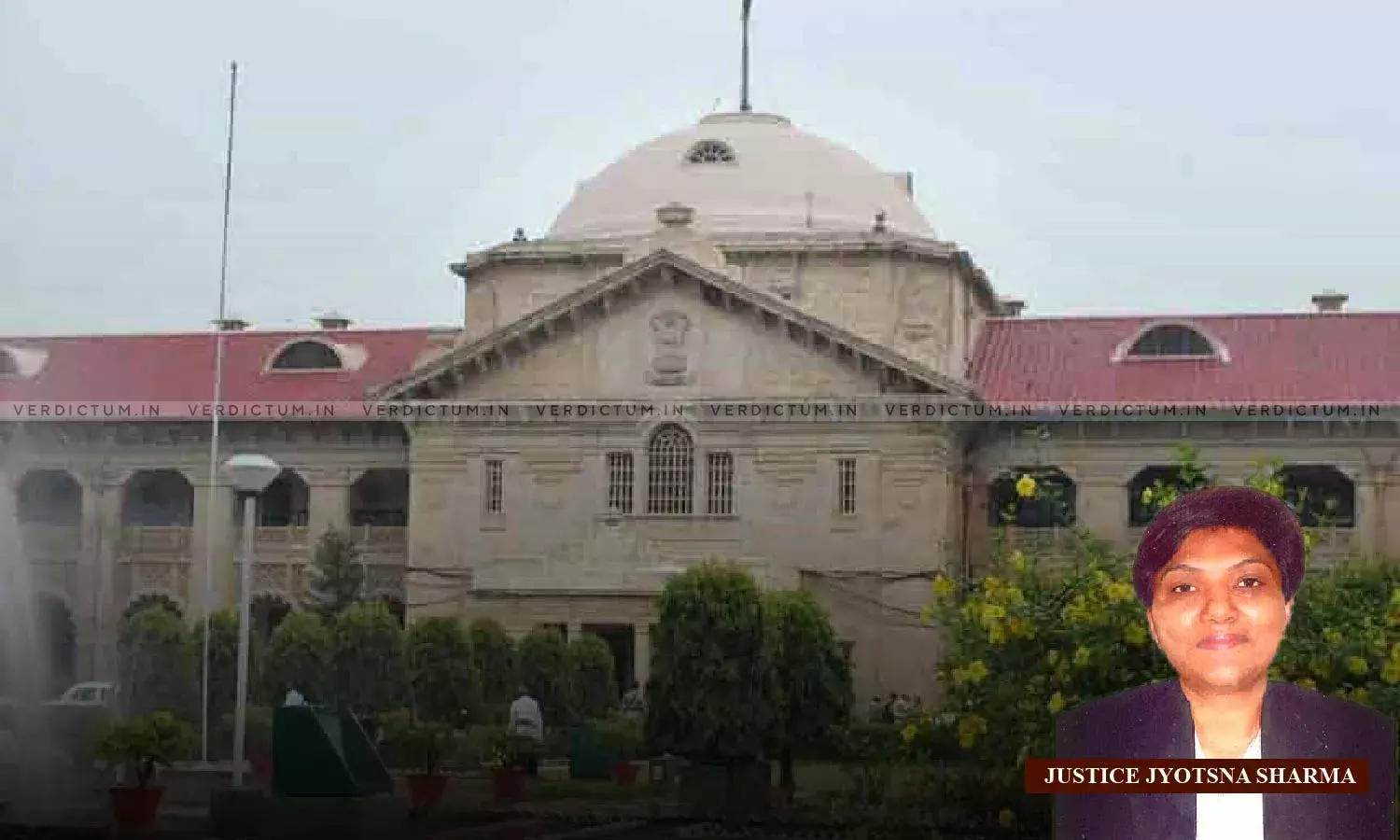Cheque Dishonourment Case Can Be Disposed Of Without Direct Consent Of Complainant If Fair Compensation Is Offered: Allahabad HC

The Allahabad High Court has held that a case of cheque dishonourment can be disposed of without obtaining the direct consent of the complainant under certain circumstances such as offering an amount of fair and acceptable compensation.
A Single Bench of Justice Jyotsna Sharma noted, “The Supreme Court did not say that the requirement of consent for compounding may just be done away with. Instead widening the compensatory aspect of cases filed under Section 138 of the Negotiable Instrument Act, the Apex Court has carved out a window in the existing scheme of things saying that the case can be disposed of without obtaining direct consent of the complainant under certain circumstances. The circumstances included offering an amount fair and acceptable which in the opinion of the court is appropriate for duly compensating the complainant. That is under certain circumstances the court can proceed in absence of direct consent.”
The Bench said that the court is empowered to apply its discretion in terms of provisions of Section 258 of the Cr.PC.
Advocate Abhitab Kumari Tiwari appeared for the revisionist while AGA O.P. Mishra and Advocate Archana Tyagi appeared for the respondents.
In this case, by means of a criminal revision, the revisionist had challenged an order passed by the Session Judge, Meerut whereby the revisional court set aside the order passed by the Additional Special Court in a criminal complaint case under Section 138 of the Negotiable Instrument Act, 1881. The revisionist filed a complaint in 2009 which was pending before the trial court and during the course of proceedings, the accused filed a demand draft of Rs. 11 lakhs and made a prayer before the trial court to direct the revisionist/complainant to compound the case.
The revisionist objected to compounding saying that she is not ready to settle the matter for Rs. 11 lakhs after a lapse of 13 years and the Magistrate rejected the application of the accused on the ground that the complainant cannot be compelled to compound the matter. The accused challenged such an order by filing a revision and the revision came to be decided by the revisional court whereby the said order was set aside and the trial court was directed to pass an appropriate order as per the law laid down by the Apex Court in M/s Meters and Instruments Private Limited and Another v. Kanchan Mehta AIR 2017 Supreme Court 4594.
The High Court in the above regard observed, “I went through the judgment of the Supreme Court in M/s Meters and Instruments Private Limited and Another vs. Kanchan Mehta (supra). The Supreme Court highlighted the fact that the matters under Section 138 of the Negotiable Instruments Act are essentially civil wrongs and the case has to be normally tried in a summery manner as prescribed in Cr.P.C. … On the other hand, the respondent has drawn my attention to a judgment of Punjab and Haryana High Court in Nidhi Knitwears Pvt. Ltd. And Another vs. Honey Hosiery Mills: 2022 0 Supreme (P & H) 549. The Punjab and Haryana High Court has referred to the judgment of Supreme Court in M/s Meters and Instruments Private Limited and Another vs. Kanchan Mehta …”
The Court said that it studied both the judgments and then it clarified that such an aspect of the matter is distinct and separate from the compounding of the case where both parties agree.
“The revisional court has remanded the matter to decide it afresh as per law laid down in M/s Meters and Instruments Private Limited and Another vs. Kanchan Mehta (supra). By the aforesaid judgment the Apex Court has emphasized that where an appropriate amount has been offered/deposited, the trial court may consider to drop the proceeding. Definitely the objections, if any, in this regard shall be taken into consideration The court has not lost its power of discretion in such matters. In view of the above I do not find any cause for interference”, said the Court.
Accordingly, the Court dismissed the revision plea.
Cause Title- Rani Gaur v. State of U.P. and 4 Others (Neutral Citation: 2023:AHC:114218)


